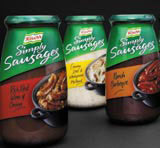Ethical? Will consumers buy it?
Danielle Green assesses the future of Unilever, as the global brand owner reviews its corporate identity

Unilever is one of the world’s biggest companies. From ice cream to soap, mayonnaise to washing powder, it provides millions of consumers around the world with everyday household products. But what does the brand stand for to Joe Public: Anglo-Dutch conglomerate; purveyor of consumer necessaries; or corporate-style, global multinational? A hasty straw poll of London cabbies reveals none of the above.
But chuck Marmite into the survey, followed by Chicken Tonight, Hellmann’s Mayonnaise and – feeling queasy yet? – a Magnum ice cream, and it’s a different story entirely. Because, like many fmcg groups, Unilever is visible to its end users largely via a showcase of individually branded products.
But as the company positions itself for the 21st century, is this enough? Or does the organisation need a stronger corporate image and, if so, how far will the balance between individual and corporate brand equity need to be re-aligned?
In these days of Enron-style scandals and Naomi Klein tracts, corporate behemoths can no longer take refuge in the shadows, concedes a Unilever spokesman. ‘Consumers are looking beyond the brands,’ he says. ‘There will come a point when we are forced to have a recognisable corporate identity.’
Referring to the well-documented ‘Persil Power’ scandal, where it was alleged the Unilever-owned detergent damaged clothing, the spokesman adds that, in the past, maintaining the focus on individual brands enabled ring-fencing of potentially damaging issues.
‘That’s no longer possible in today’s transparency-led climate,’ he admits. ‘We realise it’s better for us to be up-front and say “This is who we are”, rather than being dragged out from under a bush. Consumers are citizens these days, rather than just raw consumers. They want to know “What does this company do? Does it put something back into the community?”.’
In response to this growing consumer awareness, the company is reviewing its corporate brand. Uni-lever quietly appointed Wolff Olins last year to work on its corporate identity, consider how that might best ‘support business objectives’ and make the corporation more consumer-facing.
Work, which is unlikely to see the light of day this year, according to Unilever sources, will include a revamp of the company logo.
But giving corporate branding greater prominence can lead to the risk of damaging existing brand equity, cautions Jill Marshall, executive chairman of branding and packaging at Design Bridge, which is on Unilever’s packaging design roster.
‘You can’t knock [consumers] over the head with [corporate branding]. You could end up confusing or alienating people from the existing brands on which a lot of money and a many years have been spent building them up with their own personalities and values.’
Dave creative director Robbie Laughton agrees. He worked on the design for Unilever-funded, commuter meal-kit dispenser Rocket while at Wolff Olins, and suggests the company’s newly created venture capital arm, Unilever Ventures, could be the vehicle to inject new life into the corporate brand.
Unilever Ventures is a semi-autonomous firm with a remit to invest in promising start-ups whose activities dovetail with its parent company’s home and lifestyle focus. The first fruits of this strategy include dry cleaning and laundry facility Persil Service (previously My Home) and Rocket.
‘The work we did for Unilever on Rocket is as edgy as it’s been for a while,’ ventures Laughton, referring to the concept’s futuristic stores.
But Unilever is wary of attaching its name to ventures with a speculative, unproven nature. Probably a wise approach, suggests Steve Cook, director at Seachange Creative Partners.
‘There is this question of entrepreneurial zeal. I am not sure how well large companies such as Unilever are able to harness and develop small businesses.’
Focusing on the company’s ethical and corporate social responsibility messages is another way of spreading the word, says Laughton. In developed Western markets, the organisation is just another faceless conglomerate, but it is well known in developing countries for its social and environmental policies. These include producing staple meal packs in Brazil aimed at providing affordable nourishment for shanty town dwellers.
‘Unilever could stand up and tell people about the worthy stuff it is doing through film sponsorship or documentaries about Third World countries,’ says Laughton, who also points to initiatives such as environmental summits the company has lent its name to. ‘It’s already really opening itself up,’ he adds.
But playing the ethics card may prove counterproductive if viewed as a cynical marketing ploy, counsels Marshall. ‘There is always a danger such claims will be seen as a façade. It can be viewed as cheesy and interpreted as “they protest too much”. You have to be careful not to over-egg that pudding.’
Whatever degree of exposure Unilever opts to submit its corporate brand to, and whatever ‘face’ it decides to give itself, that must be carefully and adequately reflected in the new logo, argues Simon Sholl, consumer insights director at Landor Associates.
‘This redesign is long overdue. At the moment Unilever uses a blue, blocky, monolithic marque that says Anglo-Dutch combine. It says nothing about what the company does and there is no emotional pull,’ he says.
Sholl suggests the company takes a leaf out of oil group BP’s book, whose more ’emotionally responsive’ green flower logo Landor created.
‘Unilever needs to demonstrate power, but with the right face. At present it’s more Stalin than Tony Blair,’ Sholl contends.
It remains to be seen which world leader Wolff Olins, currently working under a confidentiality clause, will favour as its template. But it seems very likely that in the future we’ll be eating Unilever branded Marmite with our toast in the morning.
-
Post a comment




